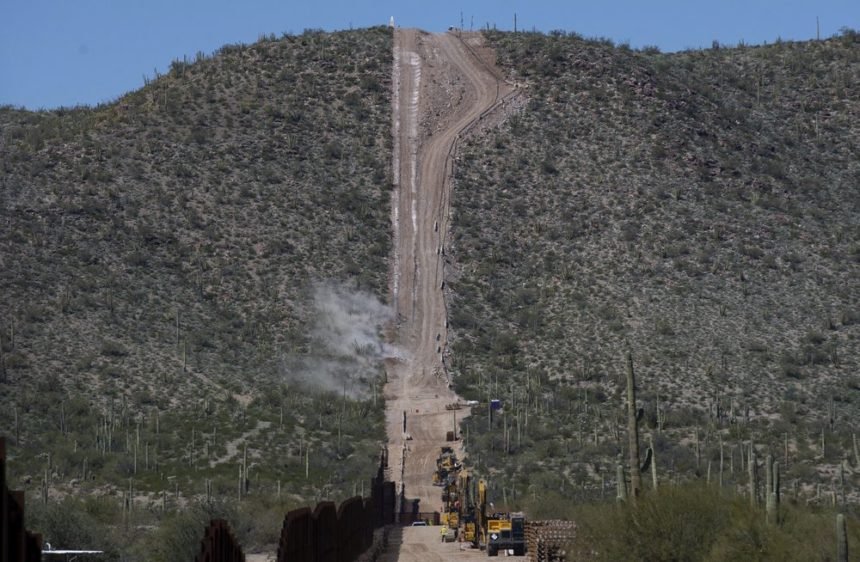Tribal leader: Work to build border wall hurts sacred land

PHOENIX (AP) — A Native American leader from Arizona grew emotional Wednesday as he told a congressional committee about the pain members of his tribe feel about U.S. officials blasting through the land they consider sacred to build part of President Donald Trump’s wall along the U.S.-Mexico border.
“No one reveres our military veterans more than the O’odham, however, dynamiting these sacred sites and burial grounds is the same as bulldozing Arlington National Cemetery or any other cemetery,” Tohono O’odham Nation Chairman Ned Norris told lawmakers in Washington.
His testimony came hours after the government carried out a new round of explosions near the southern border as a group of invited journalists watched. Construction crews this month began blasting and bulldozing through hills to build a 30-foot (9-meter) steel wall 60 feet wide (18 meters wide) in Organ Pipe Cactus National Monument.
Environmental groups also are decrying the work at the national parks system site that’s named for its cactuses resembling organ pipes and is a largely untouched example of Sonoran Desert habitat.
“It’s hard to see the blasting that you showed on the video today because I know in my heart what our elders have told us: that it is home to our ancestors,” Norris said, choking up.
The administration says archaeological monitors working with Customs and Border Protection and the Army Corps of Engineers have found no sign of burial or other sacred sites in the area. Department of Homeland Security acting Secretary Chad F. Wolf told Congress on Tuesday that he plans to travel soon to meet with the tribe to discuss their concerns.
U.S. Reps. Ruben Gallego and Raul Grijalva, both Arizona Democrats, also spoke against construction of the wall during the meeting of the House Natural Resources Committee’s Subcommittee for Indigenous Peoples. The Tohono O’odham Nation stretches across southern Arizona and into Mexico.
U.S. Rep. Deb Haaland, a New Mexico Democrat and member of the Laguna Pueblo tribe, also spoke passionately, saying: “When tribal leaders don’t have a seat at the table, indigenous history is lost.”
U.S. Rep. Paul Gosar, an Arizona Republican, noted that Organ Pipe is a well-known human and drug smuggling corridor and site of the 2002 shooting death of Kris Eggle, a park ranger who died while while pursuing suspected drug cartel members.
Environmental advocates and elected officials are concerned about the wall’s potential effects in Organ Pipe, including on water from an underground aquifer and migrating animals. A desert oasis in the monument, Quitobaquito Springs, is home to the endangered Sonoyta mud turtle and Quitobaquito pupfish.
